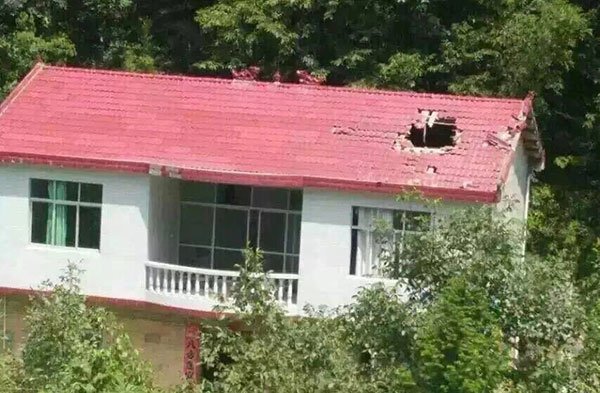Residents of a house in Ankang city, located in the Shaanxi province of China, were shocked Thursday morning after a falling rocket motor crashed through their roof.
The wreckage fell through the house at approximately 10:40am local time. A villager said he heard a big noise, which was loud enough to rattle nearby windows. The wreckage made a large hole in the house’s roof.
Local police confirmed the wreckage was part of a rocket motor from a morning Chinese space launch.
The rocket engine fell off China’s Yaogan-27 mission, which contained a remote sensing satellite sent into space on Thursday at 10:31 am. The launch occurred from Taiyuan launch site in adjacent Shanxi Province.
While an obvious oversight by the Chinese space agency, the accident highlights just how crowded space is becoming. Russia, China, India, Pakistan, Europe, Japan and the United States are now all launching rockets at a pace never before seen in human history.
This flurried launch activity puts residents of both Earth and space in danger.
Due to gravitational forces and how the Earth spins, very few places on Earth are suitable for sending cargo into orbit. As populations expand nearer to the sites that are suited for launches it effectively puts cities and villages down range from the dangerous flights, which are prone to failure or accidents. Thursday’s incident in Ankang is a prime example of this encroachment coming dangerously close to rocket launches.
Astronauts in space are also increasingly fearful of space debris from the increased number of launches. Just two weeks ago astronauts inhabiting the International Space Station were forced to take refuge in an escape capsule after debris from another Chinese rocket launch came dangerously close to their habitat. Debris that litters our planet stays in orbit for years or even indefinitely, posing severe collision risks to satellites and space stations that also circle our planet.
Thursday’s incident is a wakeup call that better coordination in space is needed to avoid casualties, regardless of the myriad of political agendas underpinning each country’s space programs. This rings particularly true for countries like China and India who have adopted a lax attitude around the long term implications of their rocket launches.
Stay Connected
